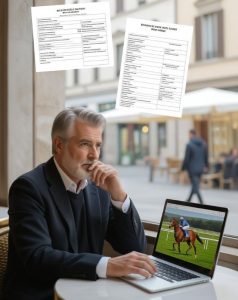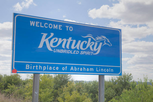Why Kentucky Gamblers Are Turning to Non UKGC Casinos for a Unique Experience

In the state of Kentucky, gamblers are overwhelmingly attracted to non UKGC casinos, which provide a unique and thrilling offering.
Unlike the UK-regulated sites, these casinos provide a wider range of gaming options, as well as international deposit and withdrawal methods and unique welcome promotions.
For Kentucky players seeking gaming options and multi-faceted gambling sites, non UKGC casinos are a highly sought alternative to standard internet gambling sites.
Variety of Gaming Options and Unique Offerings
The wide range of options is among the top reasons Kentucky players flock to these non UKGC gambling establishments.
Offering players a range of slot and table gaming offerings, these operators have international content not found in the region.
Many casinos have added live dealer options to replicate and offer a sense of realism to the global internet casinos.
Variety of Delaware and Cryptocurrency
Use of gaming sites in Kentucky has also been aided by the broad banking options offered, a primary reason these sites are at the forefront of gaming in the state.
Available options range from standard credit and debit cards to more anonymous e-wallets and other cryptocurrencies.
For players looking to protect their privacy and gain international access, these options are streamlined to offer rapid and convenient transactions.
For modern players seeking anonymity in their transactions, cryptocurrencies represented the more secure option.
ALSO READ: 3 Key Advantages of Adopting Maxi Doge in Kentucky Gambling Circles
Attractive Bonuses and Promotions
Non UKGC Casinos provide bonuses that are generous and exceed others found on UK platforms. They have welcome bonuses, free spins, and loyalty bonuses that reward players that are new and returning.
For gamblers from Kentucky, this gives them a chance to experience a new game with more valuable bonuses and have a more enjoyable experience when gambling.
Safe and Responsible Play
While these casinos are not regulated by the UK, they still operate under licensing from other parts of the world and ensure fair play and safety.
Players from Kentucky are advised to use platforms that have good certificates and have fully encrypted security with good customer support.
Player protection is strengthened with systems that allow self-exclusion, set deposit limits, and allow game time tracking.
Conclusion
Kentucky gamblers are now turning to Non UKGC Casinos due to the flexibility, wide variety, and rewarding experiences. These new platforms are also offering international payment systems and new and exciting games.
They are also offering generous bonuses and are changing the online gambling experience for the players in the region.




 More than 1.5 million Italians grapple with gambling issues each year. Picture a Roman sunset fading over the Colosseum, yet for some, the real shadows linger in the glow of a smartphone screen. Online slots and horse races pull them in, crossing borders like whispers on the wind. Italy’s AAMS system stands as a guardian, but what if its rules feel like iron chains? Across the ocean, Kentucky offers a different melody, a freer rhythm in handling self-exclusion revocations that could inspire change.
More than 1.5 million Italians grapple with gambling issues each year. Picture a Roman sunset fading over the Colosseum, yet for some, the real shadows linger in the glow of a smartphone screen. Online slots and horse races pull them in, crossing borders like whispers on the wind. Italy’s AAMS system stands as a guardian, but what if its rules feel like iron chains? Across the ocean, Kentucky offers a different melody, a freer rhythm in handling self-exclusion revocations that could inspire change.

 Many organizations in Kentucky host bingo nights, a beloved tradition that never fails to bring in a crowd. For a little fee, you can enter to win fantastic prizes in our raffles and pull tabs.
Many organizations in Kentucky host bingo nights, a beloved tradition that never fails to bring in a crowd. For a little fee, you can enter to win fantastic prizes in our raffles and pull tabs.









 Kentucky legalized sports betting in 2023, marking a significant shift in its gambling landscape. This change, driven by years of debate, offers valuable lessons for Indonesia, where football betting remains a contentious issue. By examining Kentucky’s journey, Indonesia could find a balanced approach to regulate its growing online betting scene, particularly for football, a sport that captivates millions across the archipelago. What can a state known for horse racing teach a nation where gambling is largely prohibited? Let’s explore.
Kentucky legalized sports betting in 2023, marking a significant shift in its gambling landscape. This change, driven by years of debate, offers valuable lessons for Indonesia, where football betting remains a contentious issue. By examining Kentucky’s journey, Indonesia could find a balanced approach to regulate its growing online betting scene, particularly for football, a sport that captivates millions across the archipelago. What can a state known for horse racing teach a nation where gambling is largely prohibited? Let’s explore.



 With its several games including Powerball, Mega Millions, and scratch-off tickets, the Kentucky Lottery offers a more conventional kind of gambling. For many Kentuckians, the lottery is a preferred option since earnings support other state projects including education.
With its several games including Powerball, Mega Millions, and scratch-off tickets, the Kentucky Lottery offers a more conventional kind of gambling. For many Kentuckians, the lottery is a preferred option since earnings support other state projects including education.



 In April 2, 2024, Indonesia’s Communication and Informatics Ministry (Kominfo) warned that offers of slot online and other casino games are being tracked by 150 tech specialists working 24/7 in the Ministry. Kominfo Deputy Minister Nezar Patria emphasized that the dedicated team also focused on blocking
In April 2, 2024, Indonesia’s Communication and Informatics Ministry (Kominfo) warned that offers of slot online and other casino games are being tracked by 150 tech specialists working 24/7 in the Ministry. Kominfo Deputy Minister Nezar Patria emphasized that the dedicated team also focused on blocking  Online slots played by Indonesian gamers are reputed to be advantageous because of their
Online slots played by Indonesian gamers are reputed to be advantageous because of their 